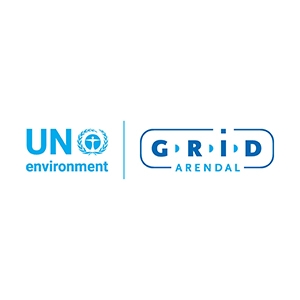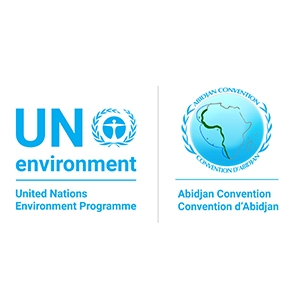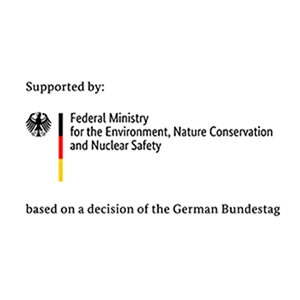The Mami Wata project “Enhancing Marine Management in West, Central and Southern Africa through Training and Application” is working in and with African countries to further develop their capacities for Integrated Ocean Management (IOM). Recognising the importance of healthy marine and coastal ecosystems for human well-being and development, the project is applying tools and strategies to improve the conservation and sustainable use of marine and coastal ecosystems and biodiversity in countries along the African Atlantic coast. The Mami Wata project is being implemented within the 22 Abidjan Convention countries, covering a combined Economic Exclusive Zone of approximately 4.8 million km2.
The project is implemented by the partners GRID-Arendal and the Abidjan Convention Secretariat, and the project is funded by the German Federal Ministry for the Environment, Nature Conservation and Nuclear Safety (BMU), through its International Climate Initiative (IKI).
The marine and coastal environment of the African Atlantic coast is home to a range of biodiversity hotspots and highly productive ecosystems. These ecosystems are a foundation of people’s well-being, livelihood, nutrition and culture. They are also vital for social and economic development of coastal communities and countries. However, the coastal and marine living resources and ecosystems are in widespread decline, with a multitude of human activities from small scale fishing to offshore mining having an impact. In order to reverse this trend, the Mami Wata project is working with countries of the Abidjan Convention Region to address human activiites in an integrated and holistic way, ensuring that conservation and our various uses are compatible.
The separation of management of the various ocean activities, potentially with conflicting goals, is one of the key challenges in ensuring the conservation and sustainable use of our oceans. For example, a Fisheries Minister cannot maximise fish landings from an area in which the Minister for Oil & Gas aims to maximise exploitation. And both activities might not be compatible with biodiversity conservation goals. In order to support an integrated ocean management approach and to bring together ocean actors from the public, private and non-governmental sectors, the Mami Wata project uses State of Marine Environment Assessments (SoME), CBD Ecologically and Biologically Significant Marine Areas (EBSA) and Marine Spatial Planning (MSP) tools.
The Mami Wata project will strengthen national and regional activities to capture the value of marine and coastal ecosystems. The project develops capacity through a dual approach, by providing knowledge sharing and training to practitioners, and by applying the IOM tools in pilot projects. Doing this in collaboration with existing Centers of Expertise will ensure the sustainability of the project beyond its duration. Pilot project experiences and developments will be upscaled to an Abidjan Convention level, and shared with similar initiatives globally.
The Mami Wata Project is providing the groundwork for the wider application of Integrated Ocean Management (IOM) in the Abidjan Convention Region. To do so, the project is building technical and institutional capacity through activities that are especially designed to create strong and connected partnerships within and between countries, institutions and stakeholders. Our Activities Map provides you with an overview of the Partner implementing the Project in the region, the Centres of Expertise for Mami Wata, the location of the three Pilot Project sites, as well as where and when the Project´s workshops and training activities are happening
The map will continue to be updated during the course of the project. Please stay tuned for more information.
“The Mami Wata training provided me with the tools to understand the concept of blue planning and its relevance for the management of marine and coastal space”.




